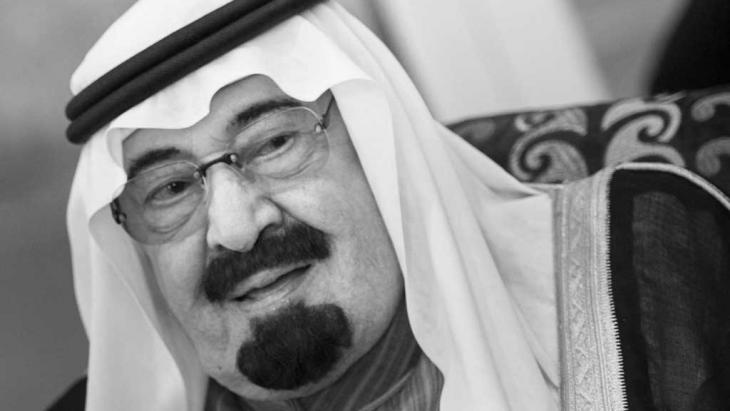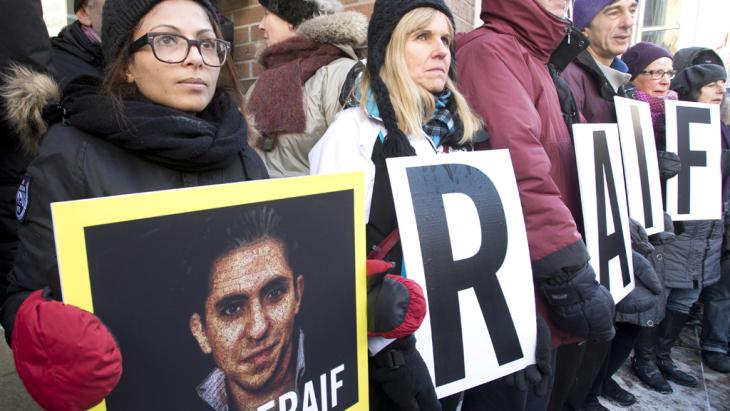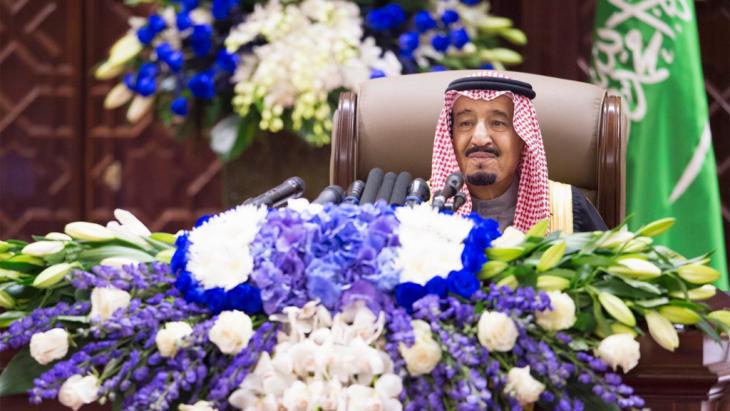"Riyalpolitik", conservatism and modernisation

Visitors to Saudi Arabia in March 2010 would have been struck by the large-format posters hanging everywhere. The posters praised King Abdullah bin Abdulaziz, who died on 23 January after being admitted to hospital in Riyadh with pneumonia, as the "Reform King" – a description that might at first have come as something of a surprise in view of the conservative social and political order of the Saudi kingdom. It may have appeared exaggerated, perhaps even cynical.
After all, did Abdullah's reign not also oversee a gender segregation that made women second class citizens and the enforcement of martial punishments such as flogging and public beheadings, which were justified by a religious legal code and used to punish contraventions of the nation's conservative sexual morals or to silence unwelcome political and religious voices?
These and many other grievances and human rights abuses were and are by no means the exception in Saudi Arabia and must – to some extent at least – be understood as a manifestation of a Saudi self-image that is propagated by the royal family. This image is expressed not least in the dissociation from liberal "Western" values such as gender equality, the far-reaching division of religion and state, and the democratic organisation of politics and society.
However, it would soon become clear to the visitor that in addition to the official description of the Saudi ruler as "Custodian of the Two Holy Sites" (e.g. Mecca and Medina), the unofficial title of "Reform King" had not been assigned to Abdullah without reason, a fact illustrated by the modernisation and opening of the country.
While the will to power primarily determines the conduct of the royal family and the economic, political and also religious elites co-opted by it, the intention to conserve and modernise shaped not only Abdullah's political style, but also, to this day, the interests of large sections of Saudi society.

"Riyalpolitik"
The reign of "Reform King" Abdullah was also characterised by his keen head for Realpolitik: weighing up the interests of the royal house – and the competition within the family itself – against those of religious-conservative Wahhabi scholarship and of sections of the population, while taking into consideration demands from both moderate social forces and the international community, was at least just as much an element of the ruler's political strategy as the continued accumulation of wealth – Saudi Riyalpolitik – and the application of harsh repressive measures whenever the monarch and those close to him felt their family's rule was being called into question.
Abdullah's reform policies, which trod the fine line between conservatism and the interest in modernisation, were often realised on a small scale or assumed limited forms, in the sense of "two steps forward, one step back": For example, by founding the "King Abdullah University for Science and Technology" (KAUST) Abdullah not only demonstrated his awareness of the kingdom's need to equip itself for the post-oil era, he also made it possible for men and women to study together on technical and scientific projects. Women on the KAUST site were also allowed to drive a car.
Both measures subverted the strict gender segregation that is enforced in the rest of the country, sometimes using harsh methods. The relaxation of gender segregation laws at the annual "Riyadh Book Fair" 2010, the appointment of female members to the 2014 Shura Council – a consultative assembly similar to a parliament and sometimes referred to as a "toothless tiger" – and the appointment of Noura al-Fayez to the post of Deputy Education Minister responsible for the education of girls, are further examples of the cautious reform process under Abdullah.
These and other measures earned the king great esteem and respect from Saudi women's rights activists and bolstered his image as a reformist monarch.

Dedicated to dialogue
The establishment of the "King Abdulaziz Center for National Dialogue" (KACND) in 2003, largely due to the efforts of Abdullah, who was crown prince at the time, and which took place against the backdrop of a profound political and identity crisis in the kingdom in the wake of the 9/11 terror attacks and attacks on Saudi territory, can be viewed as a further reform measure.
For the first time ever in Saudi history, it was made possible for representatives of the nation's many different social groups and denominations to exchange views on pressing social issues. During the course of the first meeting of the forum in particular, delegates did not shy away from tackling some of the more controversial topics. For example, issues tabled for discussion included the relationship between state-sponsored "Wahhabi" Islam and religious extremism, questions concerning the co-existence of Sunnis and Shias in the kingdom and the social status of women.
Although the recommendations made to the king at the end of every KACND meeting were and are not of a binding nature, the debates impacted on all regions of the country beyond the limits of the gatherings themselves because of the widespread reporting of proceedings. At the same time, the meetings can be seen as a reflection of the interplay between conservatism and the interest in modernisation that also exists in Saudi society: the question as to the defining features of the Saudi nation and the desire to uphold religiously motivated values as a hallmark of the Saudi nation and state, while at the same time opening up to external influences, lies at the heart of the KACND debates.
At the same time, with the Initiative for National Dialogue, Abdullah proved his flair for gauging the mood of the Saudi population and, against the backdrop of political developments resulting from the Arab uprisings of the year 2011, his forward-thinking views with regard to the consolidation of stability and power at the royal house. The choice of his successor, the newly enthroned Salman bin Abdulaziz, was also determined by this logic: Salman too is perceived as moderate and open to reforms.
Menno Preuschaft
© Qantara.de 2015
Menno Preuschaft is a research associate at the Centre for Islamic Theology at the University of Munster.
